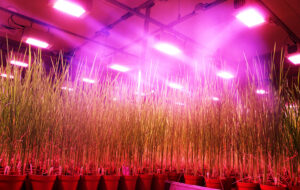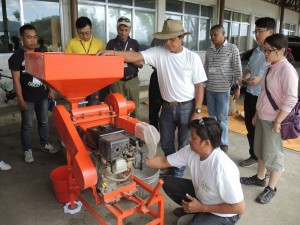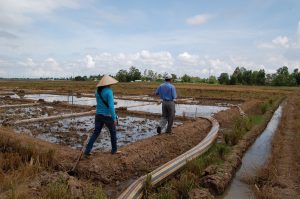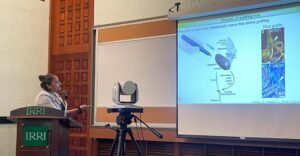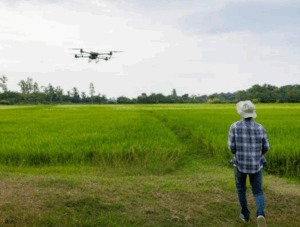Bangladesh Agriculture Minister Muhammad Abdur Razzaque urged the quick implenation of good agricultural practices (GAP) policy to increase the export of agricultural products.
The government has developed the Good Agricultural Practices (GAP) Policy 2020 and other steps as part of its thrust to improve agricultural production in the country.
The Minister also said that the impelmenation of the GAP policy across the country requires the involvement and training of officials, farmers, exporters, and other stakeholders.
Read the full story at The Daily Star
More on GAP:
Good agricultural practicesfor irrigated and rainfed lowland rice in East Africa
This bulletin builds on rice research and development experience of staff at the International Rice Research Institute working in Africa and Asia. It is designed to meet the needs of development workers, extension personnel, and rice farmers in East and Southern Africa and particularly in Tanzania.
1 Must Do, 5 Reductions
In Vietnam, the best practice package of 1 Must Do, 5 Reductions developed during the IRRC Phase IV was promoted by the Agricultural Competitiveness Project (ACP) of the World Bank. The ACP was extended to the Mekong Delta in November 2012 and rolled out in 2013. In 2013, data collected from just eight provinces in the Mekong Delta indicated that 34,500 farmers participated in training and an estimated 240,000 farmers were implementing 1 Must Do, 5 Reductions over 300,000 hectares. The economic model had estimated 425,000 hectares for adoption nationally by 2016, for a benefit of US$27 million for the period 2013-16. These estimates are not for mean impact per farmer reached and were very conservative at 5% input cost reduction. Given that 70% of the projected area had adopted the technologies already in 2013, and a 10% input cost reduction is assumed, then on average the 240,000 Vietnamese farmers would benefit by $160 each per crop or $128/hectare. This is conservative because no yield increase is assumed; recent data indicate mean yield increases for different farmer groups of 3−10%.
A “green standard” brings a new era of sustainability for the global rice sector
The Sustainable Rice Platform is a promising tool for strengthening Southeast Asia’s rice sector by promoting sustainable rice value chains globally. This regional project began in 2013 and is being implemented in Indonesia, the Philippines, Thailand, and Vietnam. It identifies problems and seeks solutions to increase farmers’ livelihoods by promoting sustainable rice value chains globally and achieving food security

